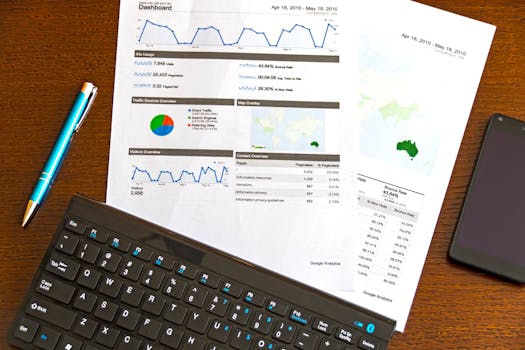Apps
Practical Tips to Speed Up Your Cell Phone and Improve Performance
Learn how to optimize your phone's speed with practical and simple tips. Keep your smartphone fast and fluid without installing anything new.
Advertisement
In today's world, having a fast phone is essential to get the most out of your experience. Slow mobile devices can be a major annoyance, especially when you're in a rush or browsing social media. A fast phone means greater productivity and smoother entertainment.
While many people think the only way to speed up their smartphone is to download new apps or updates, there are several measures you can take without installing anything new. Often, the system itself already has options that, if properly configured, can yield significant results.
This article will cover practical and effective tips to boost your phone's performance. This way, you can use your device more efficiently, without worrying about unnecessary slowdowns or crashes.
Disabling Background Apps
Many apps continue to run in the background, consuming valuable resources on your phone. This can significantly affect device performance. Disable these apps to free up memory.
To do this, access your system settings. Locate the application management option and see which ones are running in the background. Disable autorun.
It's important to note that some apps, such as messaging apps, may be essential. However, most social apps can be disabled without direct harm. Therefore, prioritize the most important ones.
After disabling your least-used apps, you'll notice a smoother operation of your phone. This simple action can significantly improve overall device performance.
So, take some time to review the apps running in the background. This is a simple action that can make a big difference in your phone's performance.
Cache Clearing
Cache is a temporary memory that stores information to make applications run faster. However, too much accumulated data can have the opposite effect.
It's recommended that you clear your cache periodically. In Settings, look for "Storage" and locate your app cache. Clearing it can free up space and improve your phone's speed.
After cleaning, you'll notice faster response times when opening apps and navigating through functions. Some systems may even offer an automatic cleaning option, making this process even easier.
Don't hesitate to repeat this procedure whenever you notice things are slow. Performing regular cleaning will help keep your phone faster over time.
A best practice is to set a monthly reminder to perform this task. Ongoing maintenance is essential to ensure your smartphone operates at optimal performance.
Uninstall Unnecessary Applications
Over time, many users accumulate a number of apps they don't usually use. These apps take up space and resources on their phones, contributing to slowdowns.
The first step is to review your installed apps. Think about how often you use each one. If an app isn't part of your routine, consider removing it.
To uninstall, go to your device's settings or tap the app icon on your home screen. The uninstall option is usually visible and easy to find.
While it may seem like tedious work, this action provides a cleaner device. This not only improves speed but also makes it easier to navigate the apps that really matter.
Keep in mind that by using fewer apps, your phone will have more space and memory to work with. A cleaner digital environment means better performance for your smartphone.
Update the Operating System
Keeping your operating system up to date may seem simple, but it's crucial to ensuring your phone's agility. Updates bring new features and performance improvements.
Monitoring available updates and applying them as soon as necessary can result in a more responsive device. Most smartphones provide update notifications.
If you don't see this type of notification, check manually in your phone's settings. Typically, there's a dedicated "System Update" option in the menu.
Another point is that updates also often fix bugs and glitches, factors that may be contributing to slow performance. So, you benefit doubly from updating.
Finally, a great way to ensure you don't miss an update is to enable automatic updates. This way, your system will always be optimized, without you having to manually tweak it.
Reset App Preferences
Resetting app preferences can help clear out outdated settings that are affecting your phone's functionality. This can free up valuable resources.
To do this, go to your device's settings, locate "Apps," and look for the "reset preferences" option. This action does not delete any apps or personal data.
Resetting your system will result in a leaner software experience, as default and disabled app settings are restored. This can positively impact the smoothness of your device.
It's worth remembering that after this action, some personal preferences will need to be adjusted again, but often the improvement in performance is worth the small extra effort.
Performing this task should be seen as a step towards ensuring a consistently responsive cell phone, directly contributing to a superior user experience.
Keep Storage Organized
Disorganized storage can erode your phone's speed. Therefore, establishing an organization strategy is essential to ensure proper performance.
A good practice is to use folders to group similar apps. Additionally, reviewing your storage is important: check photos, videos, and files that can be deleted.
Use a native file manager to facilitate this organization, allowing you to more easily review what's taking up space. This will help free up memory and improve system performance.
Another point to consider is using cloud services to store photos and documents. This saves space on your device while maintaining optimal storage capacity.
At the end of this process, you'll have more free space, allowing the system to work more efficiently and quickly. A little organization can make all the difference.
Conclusion
Improving your phone's speed without installing new apps is entirely possible. The tips presented demonstrate that the solution often lies in your settings and daily practices.
From disabling unnecessary apps to maintaining organized storage, you can make your smartphone run more smoothly. Each of these actions contributes to superior performance.
Implementing these tips only requires a little time and dedication, but it can result in a faster, more efficient phone. The important thing is to maintain this maintenance routine.
This way, you'll ensure your device is always optimized and ready for your needs. Efficiency and responsiveness in your daily routine will always be within your reach.
Taking care of your cell phone is an investment that pays off in terms of quality of use and productivity. Don't underestimate the power of these small measures. Try it and feel the difference.
You may also like

How to Use Microsoft Rewards to Get Free Minecoins
This article details the step-by-step process of how to transform your daily internet activities into Minecoins; click to learn more.
Keep Reading



